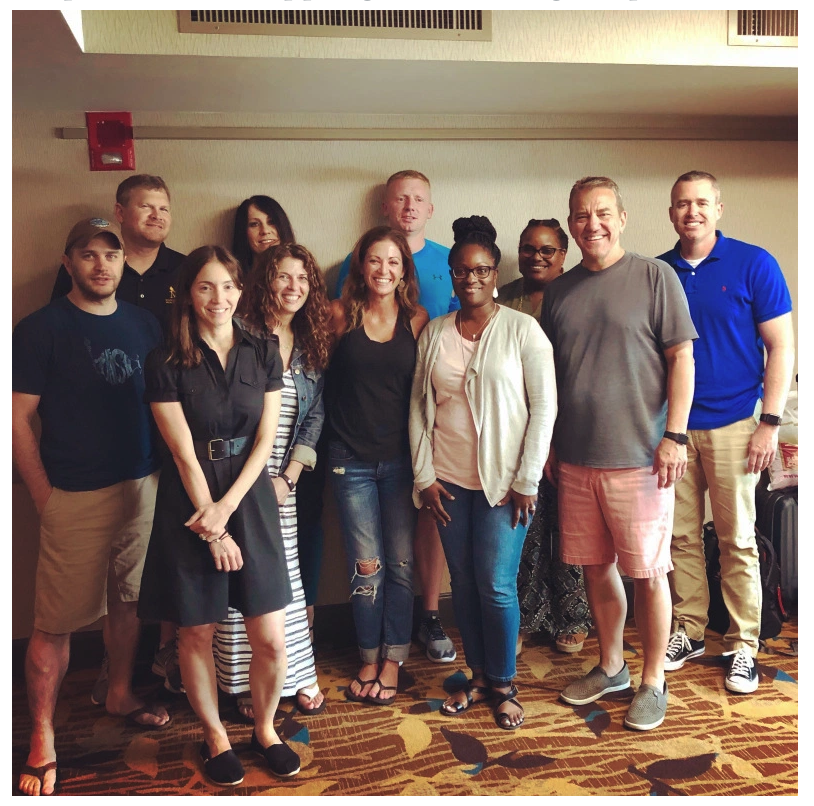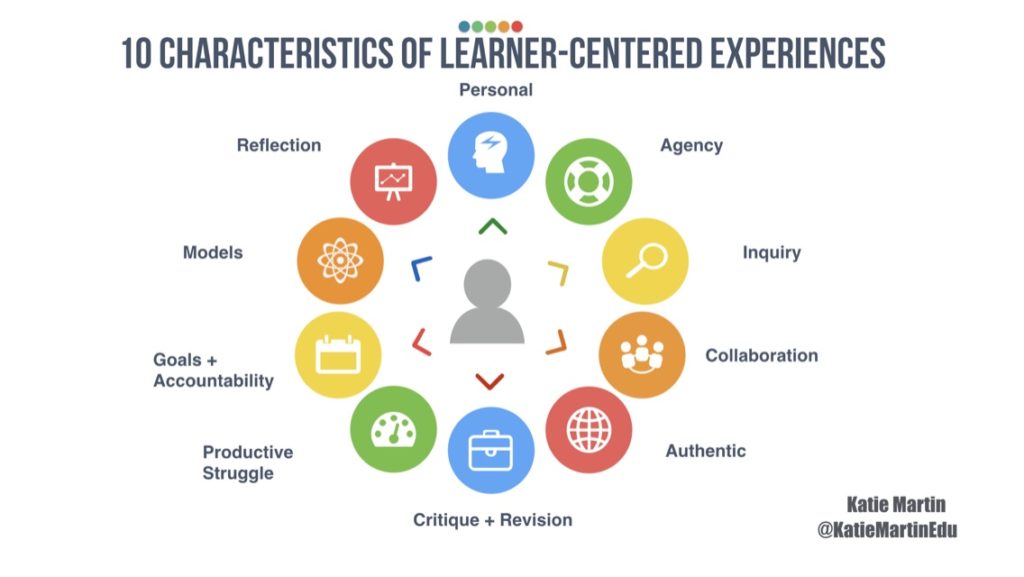As educators, we are socialized in various ways including the observations of our previous teachers known as the apprenticeship of observation (Lortie, 1975), our preparation programs, and especially our first on-the-job experiences. Our beliefs and expectations are shaped by our experiences including professional learning, which is often why I often say that if we want to change how students learn, we need to change how educators learn. Too often though, I hear from teachers, and administrators (which is further substantiated by research) that professional development is not meeting the needs of the majority of teachers and largely fails to change classroom practices. Too often educators are still forced into a one size fits all compliance-based model that does not meet their needs.
We can continue to buy new programs and buy new resources, but if we fail to engage and empower teachers to design better experiences for our kids in the classrooms, I believe we will miss the greatest opportunity in education reform.”
Learner-Centered Innovation
Shifting professional learning from compliance to empowerment is a critical lever in meeting the needs of our diverse students, which is why I chose this topic to write about for my chapter in the upcoming book, Education Write Now Volume 3: Solutions to Common Challenges in Your School or Classroom. This past summer I was honored to collaborate with educators: Lynell Powell, Rachelle Poth, Jennifer Casa-Todd, Josh Stumpenhorst, Jeff Zoul, David Geurin, Sanée Bell, Ross Cooper, Danny Steele, and Senior Editor at Routledge, Lauren Davis. This is truly an amazing group of people with whom I loved collaborating with and learned a great deal from.

Over the 3 days, we took ideas and experiences and through sharing ideas, drafting, collaborating, getting feedback, revising, stressing, editing, sharing more, we left with 10 chapters that we were all inspired by and proud of individually and collectively. I couldn’t help but think of the implications for our own professional learning and growth. The experience that I had aligned so well with the 10 Characteristics of Learner-Centered Experiences that always surface when people share powerful learning experiences. I found such a great connection to the learning that I experienced and reflected on the implications for professional learning. In my chapter Shifting Professional Learning from Compliance to Empowerment, I have highlighted professional learning experiences that both model and support these 10 learner-centered characteristics.
Here is an excerpt from the chapter:
Collaboration
Overwhelmingly, teachers prefer to learn from and with their peers, and we all benefit from regular collaborative learning opportunities with others. Put effective systems in place for teachers to connect and collaborate during the work day so they can learn new strategies and increase their effectiveness and efficacy through the collective knowledge and support of the learning community.
Create Communities of inquiry to find and solve problems together
At Calavera Hills Middle School, Brooke Tobia shared the power of weekly “Hack Meetings.” Her principal, Michael Ecker created time for teachers to identify their North Stars in education and based the goals, aligned with the school goals they were able to find staff who shared similar aspirations. This was not an additional thing to do. Instead, they used their Thursday meetings to collaborate, learn and work on ideas that would help them achieve their goals. Brooke shared how powerful this experience was in that everyone had a shared vision of what they were trying to accomplish and set our goals yet they had the autonomy and structured time to figure out how to get there.
Collaborate with Students
Inviting students to collaborate in professional learning can help us all learn about how to improve our practices to meet the needs of learners and get invaluable feedback and ideas. I facilitated a workshop for school leaders and we invited students to participate with each group. Educators interviewed students and gained new perspectives and the students provided feedback on the educators’ plans. Another example was shared by Principal Kupunck who had their 3rd graders lead the staff meeting and taught teachers how to use Ozobot, Scratch and breakout Edu. The students were empowered and the educators learned with their students.
A trap that we often get stuck in is assuming that we know what people need and why they are acting a certain way without actually asking or understand their perspective. When we honor diverse voices and empathize with those we serve, we can better understand how our practices impact others. Empathy interviews can help us create new solutions or change behaviors to better meet the needs of learners.
Job-alike teams to design, reflect, and examine evidence of learning experiences
Shifting to more authentic project-based learning can be overwhelming to do alone. Camille Nunnencamp shared that she worked with her team to design projects together When teachers and administrators work together to analyze student work samples, assess strengths, and determine next steps, these learning experiences help everyone to continuously improve.
Connecting with other educators and students in your school, district, or globally, will expose you to new ideas or push thinking about better ways of doing things.
Education Write Now: Solutions to Common Challenges in Your School or Classroom
All proceeds from this book will go to The Will to Live Foundation, a nonprofit organization dedicated to preventing teen suicide by educating them about mental health and by encouraging them to recognize that love and hope exist in the relationships we have with each other.
I have read Education Write Now Volume I and II and am grateful to be part of Volume III, which will be out by the end of the year. Check out excerpts from Lynell Powell, Rachelle Poth, Jennifer Casa-Todd, Josh Stumpenhorst, Jeff Zoul, David Guerin, Ross Cooper, and stay tuned for the final chapter next week by Danny Steele.



0 Comments